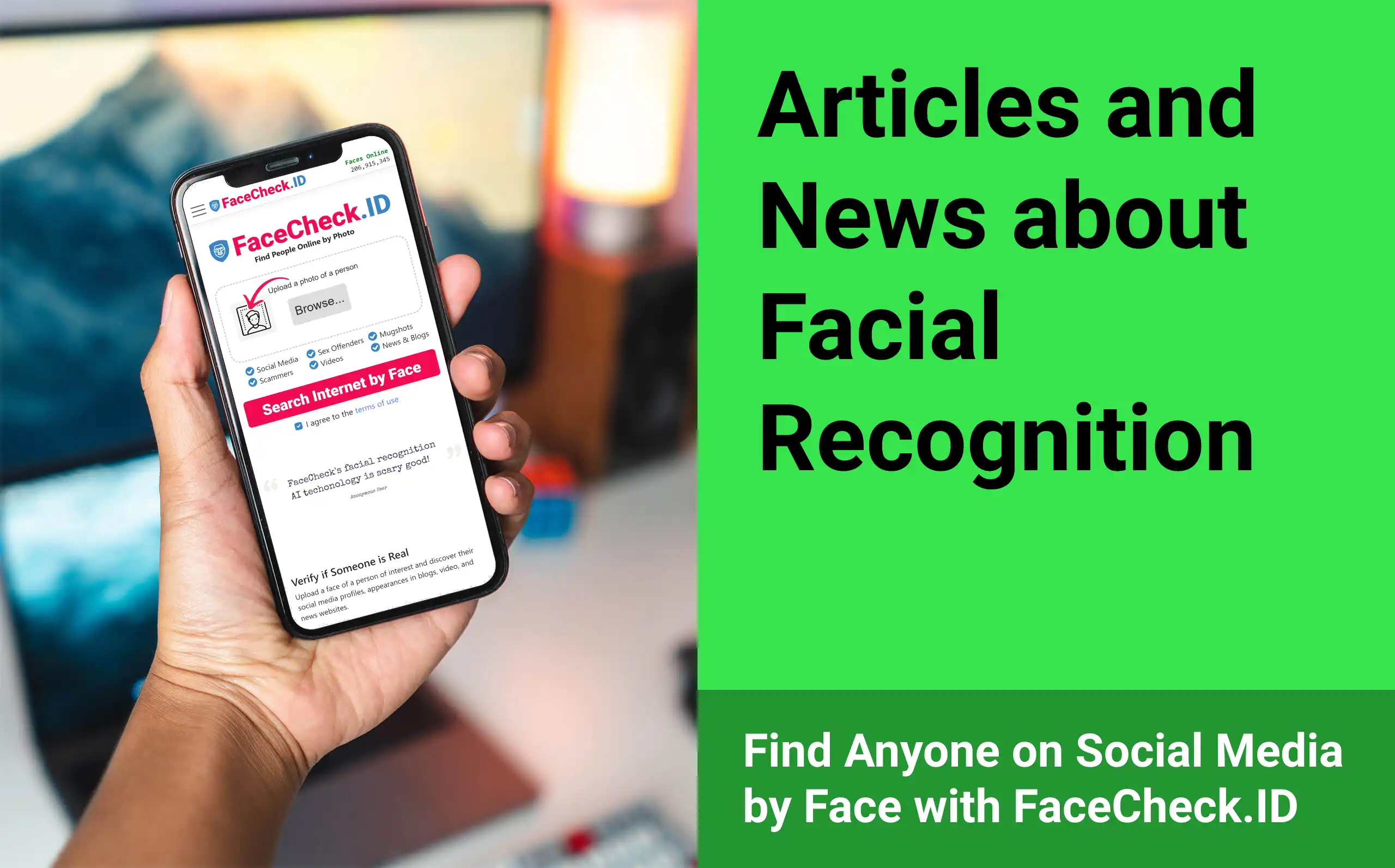Facial Recognition Resources
In this article, we're going to discuss
- https://findbiometrics.com/solutions/facial-recognition/
- https://www.technologyreview.com/2014/03/17/13822/facebook-creates-software-that-matches-faces-almost-as-well-as-you-do/
- https://www.forbes.com/sites/kathleenchaykowski/2017/12/19/facebooks-new-facial-recognition-switch-can-find-photos-of-you-across-the-social-network/?sh=7b9ba9b93fd7
- https://www.wired.com/story/facebook-will-find-your-face-even-when-its-not-tagged/
- https://www.forbes.com/sites/quora/2017/09/13/how-does-apples-new-face-id-technology-work/?sh=3bdefdf92b7f
- https://www.theverge.com/2018/5/7/17329196/ticketmaster-facial-recognition-tickets-investment-blink-identity
- https://www.theverge.com/2018/3/9/17100314/british-airways-facial-recognition-boarding-airports
- http://www.businessinsider.com/order-burgers-with-your-face-at-caliburger-2017-12?r=UK&IR=T
- https://www.nytimes.com/2020/06/10/technology/amazon-facial-recognition-backlash.html
- https://www.theverge.com/2018/7/5/17535814/uk-face-recognition-police-london-accuracy-completely-comfortable
- https://www.businessinsider.com/china-facial-recognition-limitations-2018-7
- https://open.nytimes.com/how-the-new-york-times-uses-software-to-recognize-members-of-congress-29b46dd426c7
- https://www.theguardian.com/commentisfree/2018/jan/16/find-your-art-doppelganger-facial-recognition-technology-frightening
- https://www.theguardian.com/technology/2018/jul/07/artificial-intelligence-can-tell-your-sexuality-politics-surveillance-paul-lewis
https://findbiometrics.com/solutions/facial-recognition/
Facial Recognition
Facial recognition technology measures and matches the unique characteristics for identification or authentication. Face biometrics have the potential to be integrated anywhere you can find a modern camera. While controversy has emerged over how law enforcement authorities use facial recognition, many police officials have argued that the technology helps them to fight crime, and it can also be used to identify missing persons and the victims of human trafficking.
https://www.technologyreview.com/2014/03/17/13822/facebook-creates-software-that-matches-faces-almost-as-well-as-you-do/
Facebook Creates Software That Recognizes Faces Almost as Well as You Do
Researchers at Facebook have developed new software that can accurately identify faces 97.25% of the time, compared to humans who are accurate 97.53% of the time. The software, called DeepFace, uses a deep learning approach to facial recognition. Deep learning is a type of artificial intelligence that involves software that uses networks of simulated neurons to learn to recognize patterns in large amounts of data.
https://www.forbes.com/sites/kathleenchaykowski/2017/12/19/facebooks-new-facial-recognition-switch-can-find-photos-of-you-across-the-social-network/?sh=7b9ba9b93fd7
Facebook's Facial Recognition Can Find Photos Of You Across The Social Network
Facebook has launched an opt-in facial recognition tool that will notify users if they appear in someone else's photo. The features should help people manage their online identity and feel more in control over what's being shared about them on the social network. However, some privacy concerns have been raised about the new tools.
https://www.wired.com/story/facebook-will-find-your-face-even-when-its-not-tagged/
Facebook Can Find Your Face, Even When It's Not Tagged
Facebook's new tool uses facial recognition to identify users in photos, even when they're not tagged. The feature is currently available to most of Facebook's global users, except for those in Canada and the European Union. Some privacy advocates argue that the system should require users to opt-in, rather than force them to opt-out.
https://www.forbes.com/sites/quora/2017/09/13/how-does-apples-new-face-id-technology-work/?sh=3bdefdf92b7f
How Does Apple's Face ID Technology Work?
The new Face ID technology from Apple uses a depth map of your face to unlock your iPhone X and is designed to resist spoofing by photos or masks. It is estimated to be 1 in 1,000,000 accurate and can be used to unlock your iPhone X even when you're not looking at it. Additionally, Apple has acquired RealFace, a cybersecurity and machine learning firm specializing in facial recognition technology, which is thought to form the basis for Face ID.
https://www.theverge.com/2018/5/7/17329196/ticketmaster-facial-recognition-tickets-investment-blink-identity
Ticketmaster wants to replace tickets with facial recognition
Live Nation and Ticketmaster are considering using facial recognition technology to replace tickets. This would allow concertgoers to simply walk into venues, without having to wait in line to have their tickets scanned. However, this would also mean that Ticketmaster would need to develop a database of all its concertgoers' faces, which may not be well-received by the public.
https://www.theverge.com/2018/3/9/17100314/british-airways-facial-recognition-boarding-airports
British Airways brings its biometric identification gates to three more US airports
British Airways is expanding its biometric identification gates to new airports in New York (JFK), Miami (MIA), and Orlando (MCO). These "biometric e-Gates," which have been on a trial at Los Angeles International Airport (LAX) since November 2017, use facial recognition to match flyers with their passport, visa, or immigration photos and can remove the need to show a boarding pass or identification when getting on a plane. With the biometric gates at LAX, British Airways has been able to board "more than 400 customers in only 22 minutes," which the company says is less than half the normal amount of time. At JFK and MIA, British Airways is running a slightly different trial where the gates will be used to identify passengers arriving from Heathrow Airport, meaning they'll no longer have to scan travel documents or be fingerprinted after they land.
http://www.businessinsider.com/order-burgers-with-your-face-at-caliburger-2017-12?r=UK&IR=T
This burger chain wants to replace cashiers with machines that analyze your face and know your order
CaliBurger is a burger chain that is using machines that analyze customers' faces to remember their past orders. The chain is already using robots to flip burgers in its kitchens. If all goes well, the chain plans to roll out the self-ordering, face-recognizing kiosk at all locations in 2018.
https://www.nytimes.com/2020/06/10/technology/amazon-facial-recognition-backlash.html
Amazon Pauses Police Use of Its Facial Recognition Software
Amazon has announced a one-year moratorium on the sale of its facial recognition software to law enforcement agencies. The move comes amid growing concerns that the technology may lead to unfair treatment of African-Americans. Amazon had been criticized in the past for misidentifying people of color. In its blog post, the company said it hoped the moratorium on its service, Rekognition, "might give Congress enough time to put in place appropriate rules" for the ethical use of facial recognition. The announcement was a striking change for Amazon, a prominent supplier of facial recognition software to law enforcement.
https://www.theverge.com/2018/7/5/17535814/uk-face-recognition-police-london-accuracy-completely-comfortable
London police chief is completely comfortable with using facial recognition
The head of the London police force has defended the organization's ongoing trials of automated facial recognition systems, despite legal challenges and criticisms that the technology is "almost entirely inaccurate." According to a report from The Register, UK Metropolitan Police commissioner Cressida Dick said on Wednesday that she did not expect the technology to lead to "lots of arrests," but argued that the public "expect[s]" law enforcement to test such cutting-edge systems.
https://www.businessinsider.com/china-facial-recognition-limitations-2018-7
China's 'Big Brother' technology isn't nearly as good as the government wants you to think
The Chinese government is working to create a techno-authoritarian state powered by artificial intelligence and facial recognition to track and monitor its 1.4 billion citizens. However, recent reports suggest that the technology is not as ubiquitous or useful as the government wants its citizens to believe. For example, an exec at one of the main Chinese artificial intelligence startups powering the surveillance technology told Business Insider that its platform cannot handle searching for more than 1,000 people at a time due to technological limitations.
https://open.nytimes.com/how-the-new-york-times-uses-software-to-recognize-members-of-congress-29b46dd426c7
New York Times Uses Software To Recognize Members of Congress
The New York Times has developed a tool called Who The Hill that uses facial recognition software to identify members of Congress. The tool is not perfect, but it has been helpful for reporters in confirming the identities of members of Congress.
https://www.theguardian.com/commentisfree/2018/jan/16/find-your-art-doppelganger-facial-recognition-technology-frightening
Finding your museum doppelganger is fun but the science behind it is scary
The Google Arts & Culture app has a new feature that allows users to take a selfie and find out which museum portrait they most resemble. While the app is mainly meant for fun, it also highlights the scary implications of facial recognition technology, which is becoming increasingly sophisticated and pervasive. In China, for example, facial recognition technology is being used to monitor citizens, and in the UK and US, it is being used to identify potential criminals. There are concerns that the technology is biased against women and minorities.
https://www.theguardian.com/technology/2018/jul/07/artificial-intelligence-can-tell-your-sexuality-politics-surveillance-paul-lewis
'I was shocked it was so easy': professor says facial recognition can tell if you're gay
Psychologist Michal Kosinski assistant professor of organizational behavior at Stanford University, claims that artificial intelligence can detect a person's sexuality and political views just by looking at their face.
He says that this technology could be used to detect emotions, IQ, and even a predisposition to commit certain crimes.
Kosinski has also used algorithms to distinguish between the faces of Republicans and Democrats, in an unpublished experiment he says was successful.
Read More on Search by Picture
Fake Profile Scam? Why 99% of the Time the Person in the Photo Is Innocent
Spotted a suspicious profile but not sure if the face is real or stolen? Scammers steal photos from innocent people every day, so it's important to verify before you engage or accidentally accuse the wrong person. Here are the red flags and verification steps that could save you from emotional and financial disaster.
Popular Topics
Deepfake Artificial Intelligence Doppelgänger Facial Recognition Software Identity Facial Recognition Facebook Facial Recognition Technology Identification Law Enforcement Biometric Fingerprint Find Photos iPhoneBest Reverse Image Search Engines: PimEyes vs FaceCheck Review

